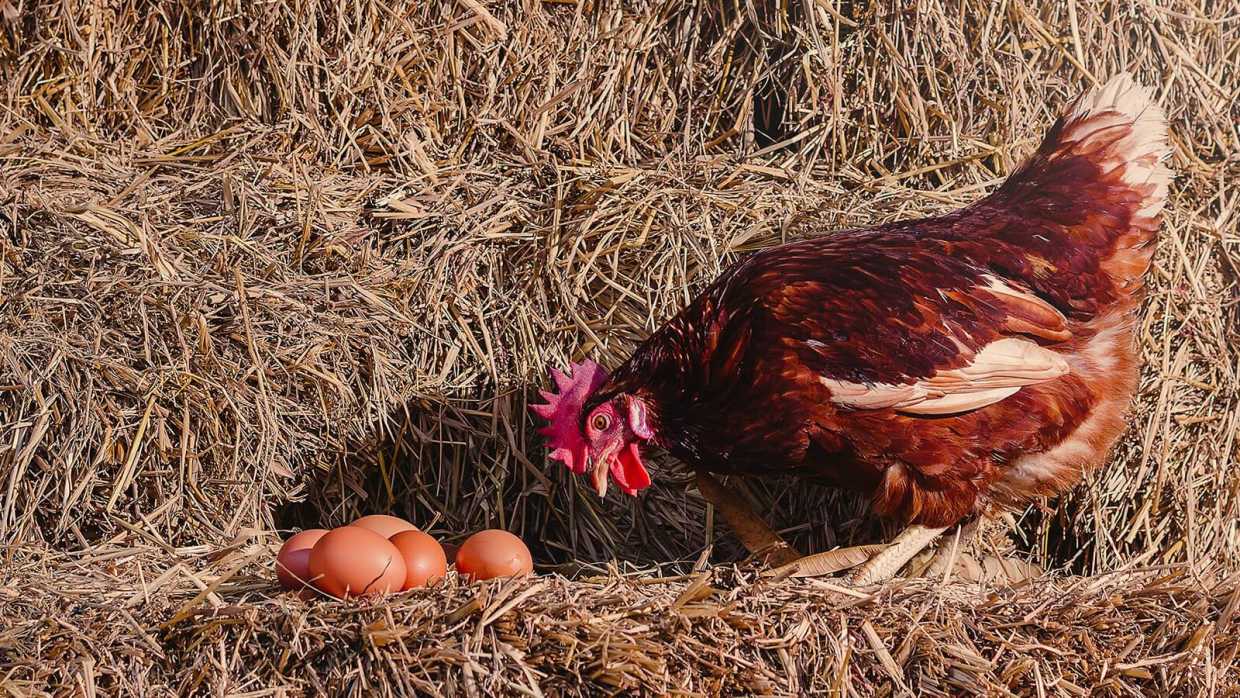Egg Culling is an industry practice that you probably haven't heard about, and there's good reason.
The short answer? Because if everyone knew what this horrific practice really entailed, the egg industry would probably see a serious decline in sales.
In essence, egg culling is the elimination of newborn male chicks. Since they cannot grow up to lay eggs and they weren’t bred to grow at super-speed to be slaughtered for poultry (a kind of bird called broiler chickens), financially, they’re essentially “useless.”
So farmers “dispose” of the downy male chicks. The most common methods include being gassed, or ground alive in what is essentially a giant blender, according to Certified Humane. Less practiced methods include electrocution and decapitation. But no matter how these chicks are euthanized, the last thing they experience before death is pain.
The good news is, awareness of this barbaric practice is spreading; and with awareness comes demand for change.
One huge step to end egg culling has been made by the United Egg Producers, a group responsible for 95 percent of egg production in the United States. In June 2016, they made a landmark commitment to end this practice. As reported by the Washington Post:
They announced that they “would end this ‘culling’ of millions of chicks by 2020, or as soon as it’s ‘economically feasible’ and an alternative is ‘commercially available,’ according to the Humane League, which negotiated the agreement.”
This commitment to end egg culling follows the research into alternatives to prevent the mass and gruesome elimination of male chicks. Luckily, shortly after this announcement, there has been a breakthrough in in-ovo sexing technology, where the gender can be identified within the fertilized egg, and those eggs will never be born, eliminating the need for slaughter. It turns out, a viable alternative may be closer than anticipated.
Vital Farms, a Texas-based company that sells pasture-raised eggs says it has developed a method for in-ovo sexing that can be applied on an industrial scale. The technology would identify the sex of the to-be chick, the day the egg is laid, by measuring its ‘metabolic byproducts’ that hold a distinct male or female signature without puncturing the egg. This would mean that the egg can still be used in the human food channel, eliminating waste and the need for this horrific culling. Vital Farms is working with an Israeli tech company called Novatrans, and hopes to have the new process commercially viable within a year.
Now you may be wondering why the eradication of egg culling hasn’t been a top priority, in terms of animal rights. That’s because the focus has been on creating more humane living conditions for the chickens that are raised to produce more eggs. Often they’re crammed in tiny cages, forced to lay dozens upon dozens of eggs for the duration of their lives before being slaughtered.
Paul Shapiro, vice president of farm animal protection at the Humane Society of the United States, said the male chicks were the “lucky ones” compared to the females in a recent interview, as reported by the Washington Post:
“Their sisters are still going to be slaughtered, but they’re going to spend 18 months in a cage where they can never spread their wings. Eighteen months of unmitigated misery is far worse than what happens to these male chicks,” he said.
After huge corporations—including fast food chains like McDonald’s and grocery suppliers like Wal-Mart—committed to selling eggs produced by chickens living in more humane conditions, the practice of egg culling was the next evil to tackle. And we’re happy to say, huge change in the world of humanely raised eggs and chickens is finally underway.
